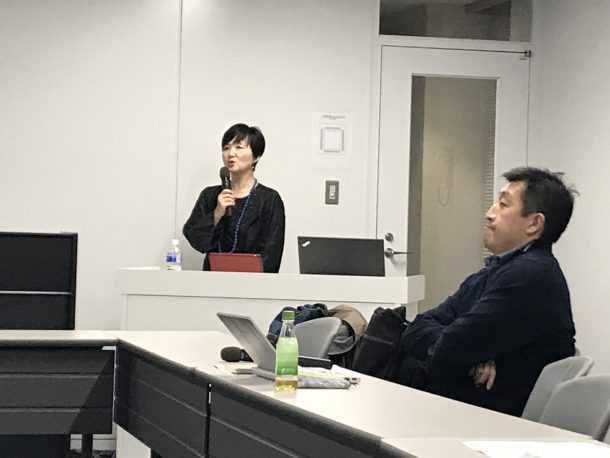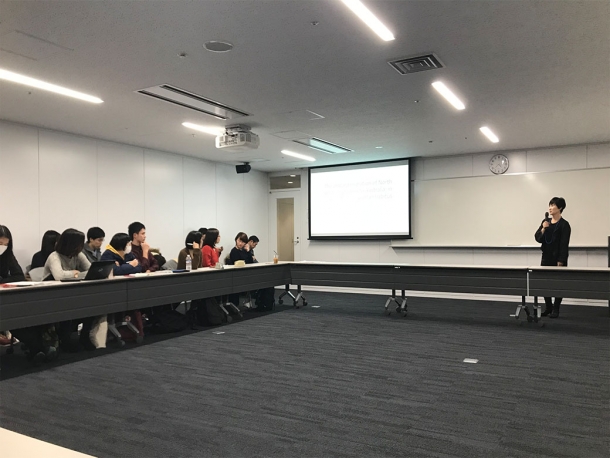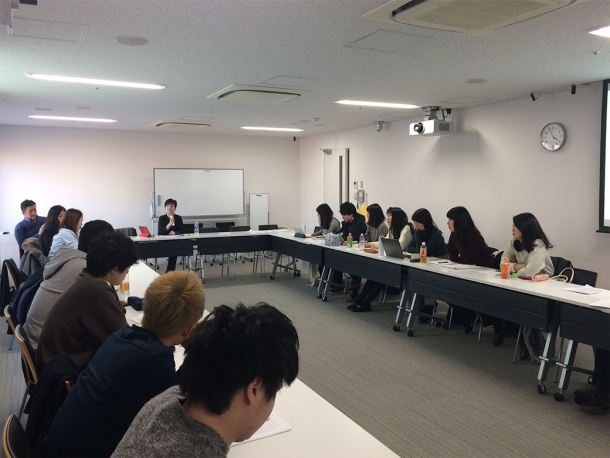Seminar”Gender, Migration and North Korea Today”
Report on “Fashion and the Social Construction of Femininity in North Korea”
In 21-22 December 2017, the Global Asia Studies Unit of the Top University Project held a series of special seminars on “Gender, Migration and North Korea Today’’ inviting Dr. Kyungja Jung, Senior Lecturer of Social and Political Sciences, University of Technology Sydney (UTS). Dr. Jung is a pioneer in the development of research on gender relations in North Korea.
In the first seminar held on 21 December, Dr. Jung has given an eye-opening lecture by shedding light on the impact of North Korea’s socioeconomic transformation on the social construction of femininity. She firstly explained how femininity and fashion are socially constructed and highlighted that North Korean Women’s fashion choices are seen as practice of femininity. She introduced the notion of hyper-femininity as an analytical lens. Secondly, she shared the findings of her research which explored how changes in economy and society have influenced gender roles and femininity in each period of North Korea. In this part, North Korean women’s changes of fashion over different periods, i.e. 1960-1990 and the mid-1990s to late 2000s, were lively described with pictures and the result of in-depth interviews with North Korean and related NGO workers. Particularly, the findings which showed the “capitalist” hyper-femininity has appeared in North Korea drew audience’s attention. From the study result, Dr. Jung concluded “North Korean women are negotiating and creating new sets of social expectations and constructions of femininity”.
Followed by the lecture, the floor was opened for discussion. Dr. Jung answered questions raised by audience with rich information obtained from her field research.
As a closing remark, Prof. Umemori, the head of the Global Asia Studies Unit stated that this seminar became a valuable opportunity for audience to realize that ordinary people’s life in North Korea certainly exists even though it is little known. Therefore, he stated that audience learned through this seminar the importance of including North Korea in the epistemological map of research in Asian contexts.

Report on “The onward migration of North Korean refugees to Australia: In search of cosmopolitan habitus”
On 22 December 2017, the Global Asia Studies Unit of the Top University Project held the second seminar of the special seminar series on “Gender, Migration and North Korea Today’’. In this seminar, Dr. Kyungja Jung, Senior Lecturer of Social and Political Sciences, University of Technology Sydney (UTS) gave another informative lecture on the theme shown above.
Dr. Jung started her lecture by asking “Have you ever considered migrating to other countries?” to audience and highlighted possible factors of migration. After the lively exchange with audience, she introduced the current situation that increasing number of North Korean refugees are migrating to third countries, e.g. UK and Australia despite that South Korea is believed to be the best country for North Korean defectors to restart their lives due to common ethnicity, language and culture, and generous settlement programs. With focus on the North Korean’s situation in South Korea and her study result based on in-depth interviews with North Koreans in Australia, she provided rich explanation of why North Korean defectors in South Korea migrate to the third country. She adopted habitus as a theoretical framework to analyse the empirical study and this particularly provided a new insight to audience from migration study. Through her lecture, the audience understood that discarding a North Korean identity and habitus as well as gaining cosmopolitan habitus are the main reasons behind North Korean defectors’ onward migration. The fact that cosmopolitan aspiration, such as the zeal for English education in South Korea, has pushed North Koreans to move on to Australia implies that reasons behind onward migration can vary according to the political and socio-cultural context of the first settled country and the origin of refugees.
Followed by the lecture, the floor was opened for discussion. There were many questions from audience and lively discussion continued. Audience was impressed by Dr. Jung answering questions with her rich experience of research broadly on this theme.


